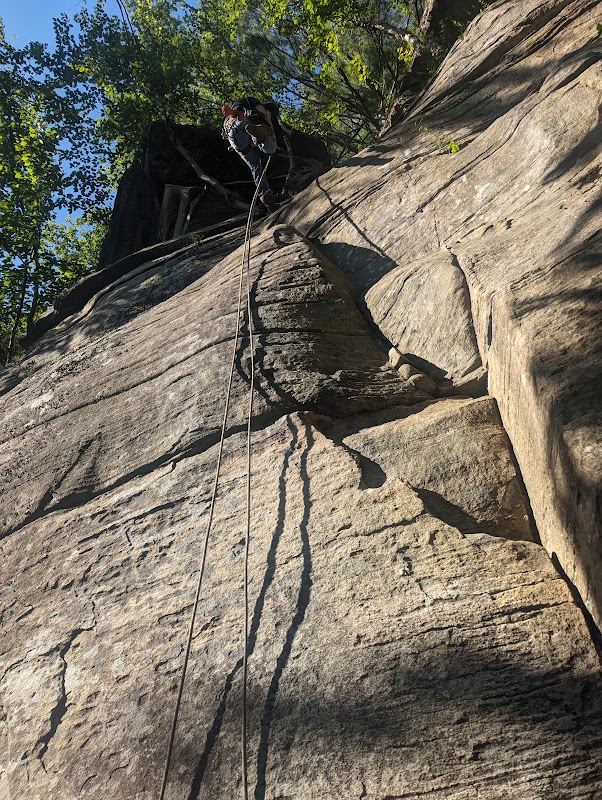
Forest Bathing at Fisherville Brook Wildlife Refuge: An Adventurer’s Guide to Mindful Wilderness Immersion
Experience the grounded calm of forest bathing at Fisherville Brook Wildlife Refuge. This 800-acre refuge offers peaceful trails, vibrant wildlife, and opportunities to connect deeply with nature—perfect for anyone seeking a mindful outdoor escape.
Wear sturdy, broken-in boots
The trail’s mix of soft moss and rocky patches requires footwear that supports ankles and offers reliable grip to prevent slips, especially near the brook.
Bring at least 1 liter of water
There’s no potable water inside the refuge; hydration is key to maintain energy and focus during your forest bathing hike.
Visit early or late in the day
Morning and late afternoon offer the best light and fewer visitors, which enhance the quiet ambiance vital for an immersive forest experience.
Move slowly and mindfully
Forest bathing is about sensory engagement, so pause often, breathe deeply, and let the forest reveal itself gradually rather than rushing through.
Forest Bathing at Fisherville Brook Wildlife Refuge: An Adventurer’s Guide to Mindful Wilderness Immersion
Forest bathing at Fisherville Brook Wildlife Refuge offers a rare chance to step away from the noise and meet the forest on its own terms. The refuge’s 800 acres stretch across dense stands of pine and hardwoods, with well-maintained trails that invite a slow, deliberate walk under towering canopies. The air—thick with the scent of moist earth and pine needles—seems to encourage deep breaths, grounding visitors in the moment.
The main loop trail is approximately 3.5 miles, with an elevation gain around 400 feet, making it approachable for most fitness levels. The terrain varies from soft fleece of moss-covered ground to sections of rocky outcrops that challenge your footing and heighten your awareness. Throughout, the brook itself offers a steady murmur, daring you to pause and listen.
To practice forest bathing here, resist the pull to rush; let your pace slow until it matches the forest’s rhythm. Notice the way light filters in shards through the branches, casting dappled shadows like shifting puzzles beneath your feet. The trees aren’t just background—they gesture with their limbs, a living architecture inviting you to observe, touch, and absorb.
Bring quality, worn-in boots for traction, and pack water to stay hydrated as the refuge has no running water available on-site. Early morning or late afternoon visits capture the forest’s quieter hours, with wildlife—including white-tailed deer and occasionally a red fox—quietly moving through the undergrowth. Avoiding midday means less sun on the trails and a cooler, more comfortable walk.
For those wanting to extend the experience, spots along the trail provide natural benches of fallen logs or granite slabs to sit and meditate, listen to the rustling leaves, or journal thoughts prompted by the forest’s raw energy. Forest bathing here is less about checking landmarks off a list and more about engaging with a force fiercely itself—the ancient woods that stretch beyond the trail and challenge you to slow down and listen.
Whether you arrive as a hiker, a nature lover, or a stressed city dweller, this refuge offers a grounded, immersive experience. Preparation is simple, but respect for the environment and yourself is key. Let the forest do its work—quiet, unhurried, and alive.
Nearby Trips
All Adventures
Boat Charters
Water Activities
Adventures near Keene, New Hampshire
Discover the unique and memorable adventures that make Keene, New Hampshire special.
Frequently Asked Questions
Is the Fisherville Brook Wildlife Refuge dog-friendly?
Dogs are allowed but must be kept on a leash at all times to protect the wildlife and maintain the peace of the forest environment.
Are there guided forest bathing sessions available?
While the refuge itself does not offer official guided sessions, local nature groups sometimes host walks focused on mindfulness. Check community listings before visiting.
What wildlife might I see during my visit?
Expect to encounter white-tailed deer, red foxes, a variety of songbirds, and occasionally turkey. Early morning and dusk are prime times for sightings.
Is the trail wheelchair accessible?
The main loop includes uneven terrain, rocky patches, and elevation changes that make it unsuitable for wheelchair access.
When is the best time to avoid crowds?
Weekday mornings and late afternoons are the quietest times to visit. Weekends tend to attract more visitors, especially in peak seasons.
Are there restrooms or water sources on site?
There are no restrooms or potable water sources within the refuge. Plan accordingly before arriving.
Recommended Gear
Hiking boots
Support and traction are vital on uneven and sometimes slippery trail surfaces.
Water bottle or hydration pack
Staying hydrated enhances comfort and focus, especially during warm or longer hikes.
Insect repellent
Helps keep black flies and mosquitoes at bay during warmer months.
Layered clothing
Preparedness for fluctuating temperatures keeps you comfortable throughout the day.
Local Insights
Hidden Gems
- "A rarely visited spur trail leads to a rocky viewpoint overlooking the brook where you can watch the current pushing forward against mossy boulders."
- "A small grove of old-growth white pines near the northern boundary carries a hushed, almost sacred presence favored by quiet meditators."
Wildlife
- "Sharp-shinned hawks occasionally sweep through the refuge looking for smaller birds, their sudden flight a thrilling surprise."
- "Eastern newts inhabit the damp areas near the brook, showing off bright red underbellies—small sparks of color among muted greens."
History
"The refuge was originally part of logging lands in the 19th century but was protected in the late 20th century to preserve diverse habitats and promote conservation education."
